JLR people still talk about the day, seven years ago, when Ralf Speth returned to Solihull as the new CEO of Jaguar and Land Rover.
It was a couple of years after Tata had bought the twin iconic British marques from Ford. Speth, who spent most of his early career at BMW, had already done a couple of tough stints in Britain: the first as part of the team struggling to build a viable business at Rover, the second as director of production, quality and product planning inside Ford’s overloaded Premier Automotive Group, which contained not only Jaguar and Land Rover but also the Aston Martin, Volvo and Lincoln marques.
Autocar Awards - the 2017 winners
Kia's Peter Schreyer wins Sturmey Award
Autocar Awards 2017 in pictures
Those present at the fateful 150-strong JLR managers’ meeting remember their surprise that Speth, having had two tough British jobs (interspersed by four much calmer years in Germany), should want to come back for more. But they were glad he did. “It was a great day,” says one witness. “Ralf held up the Land Rover watch he still wore and told us how proud he was to be back. He wanted the new group to be successful, because Britain needed a car industry. Let’s speed up, he said, and it went down a storm.”
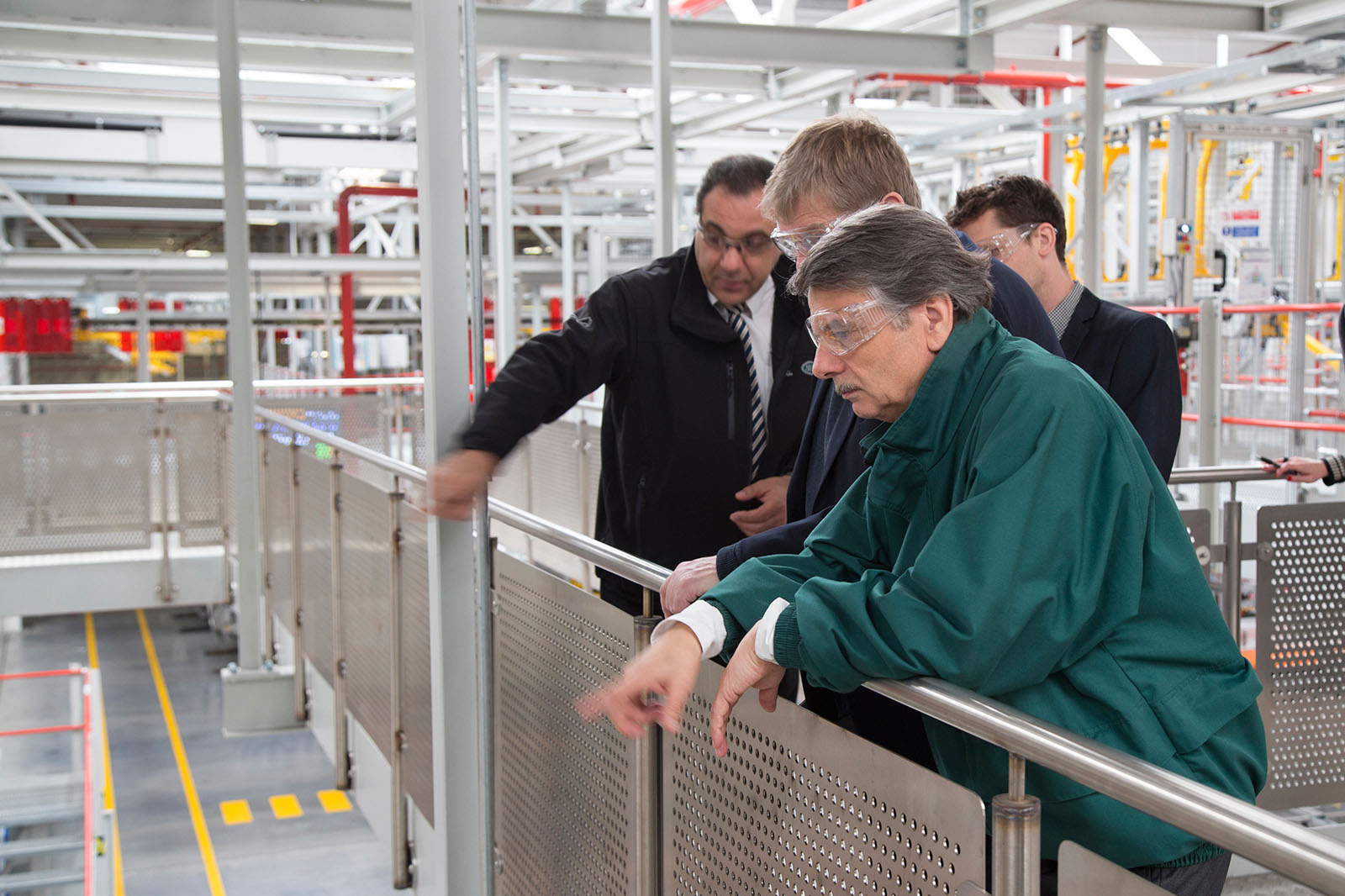
This must have been one of Speth’s few rabble-rousing performances. He’s not a natural bravura man, preferring soft-voiced and rather intense discussion among smaller groups, whom he expects to be as well informed as he is. His authority inside JLR is great, partly because of his reputation for asking the question you hoped he wouldn’t, but mostly because of the huge progress he has brought in just seven years. Here’s a short, extraordinary summary…
Since 2010, JLR’s vehicle output has quadrupled to 604,000, a tally that company insiders wouldn’t even have whispered a short time ago. A new record is expected for 2017 and nowadays even JLR’s famously cautious CEO doesn’t demur if you suggest a million might be in prospect under the right post-Brexit conditions. “Maybe after we’ve set up our new factory in Slovakia, we might get close to that,” he allows.
JLR’s profits now run at around £1.5 bilevlion a year, although the benevolent attitude of the parent Tata Group, whose board Speth joined in 2015, the same year he was awarded an honorary knighthood, has resulted in JLR becoming the UK’s biggest investor in R&D. Spending has exceeded £6bn over the past two years and shows absolutely no sign of abating.
To handle the growth, JLR’s workforce has expanded in five years from 15,000 to 42,000. Its recruitment of engineers has been so single-minded – 17,000 and counting – that the new demand has raised the traditionally low status of the profession in this country. “An engineer is no longer someone who mends your washing machine,” marvels one JLR ‘lifer’. “An engineer is someone who works on Jaguar’s fabulous new electric I-Pace that’s about to give Tesla a bloody nose.”
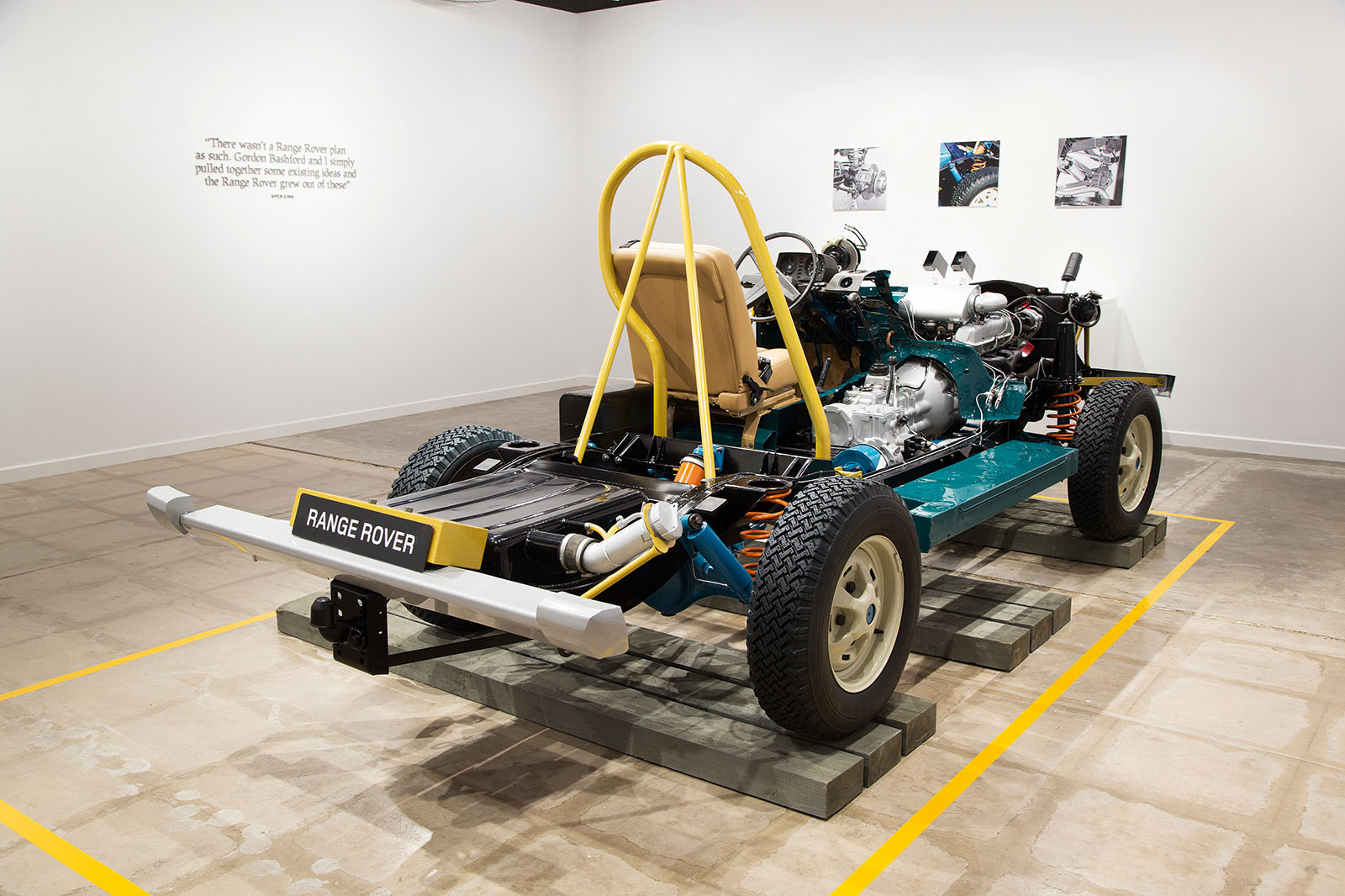
Speth can’t collect his latest accolade – the 2017 Issigonis Trophy, Autocar’s most prestigious and most personal award – at the official ceremony, because while the rest of us are celebrating in the Silverstone Wing, he will be at a Tata Group board meeting in Mumbai, the first under a newly appointed chairman. He is likely to be a star turn as he reveals JLR’s latest financial results, which are expected to be stellar.
Thus Mr Editor Tisshaw and I have come to Solihull to make the presentation early, whereupon the CEO gives us a half day of his valuable time. We fill it with a tour of the latest ‘Velar to Velar’ exhibition (a fascinating walk through 48 years of Range Rovers, open to the public), plus a good look at the early, highly flexible body and final assembly lines from which the latest Range Rover Velar is about to spring. Then there’s a working lunch in Solihull’s swish customer delivery centre and a comprehensive talk about JLR’s and Speth’s matters of the moment.
Which is where we first alight on the diesel issue. Most of JLR’s new cars are powered by them, the Wolverhampton plant opened in 2014 makes them by the 100,000, and the CEO has extremely strong opinions about their recent demonisation, making absolutely no attempt to temper his passion. “I am a very strong advocate of diesels,” he declares, “but let me say to start that the manipulating software we’ve recently seen being used in the market is completely unacceptable. It’s dishonest, and we all suffer.
“The diesel has to have a future. We need diesels, and not just for passenger cars. London is fed by diesels. Anyone who thinks they can simply remove diesels from the megacities of the world will soon discover they’re wrong. For now, there’s no alternative. We must support efforts to get rid of older diesels, and we must accept some shift to petrol cars. But we must also be faster with our move to electrification.”
Can JLR’s Wolverhampton engine plant cope if its newly launched diesels are spurned by a proportion of buyers? “Our plants are flexible,” says Speth. “We built them so they could change the mix of what they make. But a decline will be bad for all of us. We’ll miss our CO2 targets. And on particulates, so much in the news, there is no longer a significant difference in output between new diesel and new petrol engines.”
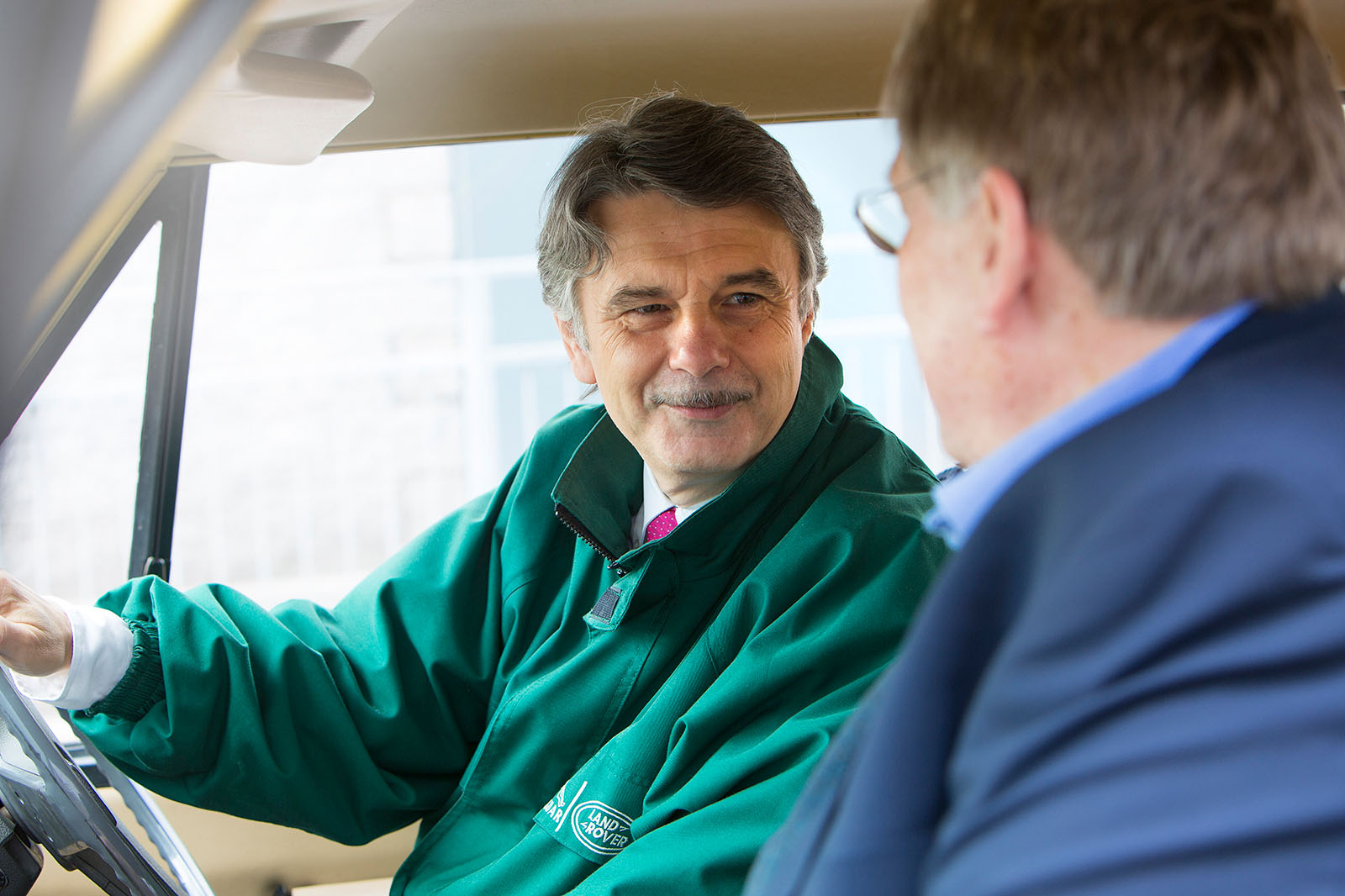
So why, I’m wondering, has the industry been so lukewarm about fighting what most see as diesel disinformation in the daily press? “It’s because people believe the industry isn’t credible on diesel subjects any more,” Speth says. “Buyers don’t think we’re giving them the latest information. We’ll probably see a decline in diesel sales, and especially a move away from diesels in small cars – and it won’t be for the right reasons. This is also a big reason why 50% of our product lineup will be electrified in some form by 2020. We’ll have mild hybrid models, plug-ins and pure EVs like the I-Pace.”
Speth’s peers recognise him as a particular expert on the advancing electric vehicle society, a progression he characterises as ‘ICE to ACE’ (Internal Combustion Engine to Autonomous Connected Electric vehicle). “There’s no conversion switch that will electrify everything,” says Speth. “You can’t say diesels will be gone in 2020 and all the new stuff will be electric or hybrid. It won’t. But if we assume that 25% to 30% of all cars will be electrified in some way by 2025, we need to worry about charging infrastructure, because it’s hard to see now how it will cope. That’s one reason we have to go on developing internal combustion engines.”
We consider a couple of extreme JLR cases for future electrification: a Land Rover Defender and a Jaguar F-Type. Speth is famous for keeping absolutely schtum on future product, but he sees no problem with either in the brave new world.
“Batteries will go on being big and expensive,” he says, “even as they progress. But wheelbases will grow; there’s no other way. And although some people think we’ll be able to get rid of tunnels down the centre of our cars, we won’t. It’ll be hard to have a sports car without a decentsized battery. You want it to be able to accelerate hard more than once.”
Speth’s bottom line on future propulsion is impressively clear. “It’s battery electric,” he says. “No other technology offers the same freedoms. If you study history, you can soon see that in the important areas – space, weight, capacity – batteries have progressed by around 4% to 7% annually. Now we need to concentrate the efforts of our universities on the problem and accelerate the progress.”
This leads us neatly to Speth’s hobby horse, which comes up frequently during our talks. Knowing that the future is electric, why doesn’t the UK better utilise the abilities and potential of its world-class universities to accelerate the progress of electrification and autonomy? We’re not just talking about batteries, he says, but about complete mobility sets. The aim should be to create a huge centre of excellence around electric propulsion. The conditions are ideal but the will is deficient. And the technology world won’t wait.
Which raises the interesting issue of the relationship between Speth and the British. He has been here a long time, likes the country and respects its people, referring favourably to a desirable lifestyle and liberal attitudes. He accepted his KBE in 2015 with something close to delight, but he has been meticulous about not making a fuss about it. And there are heart-warming pictures of him smilingly showing the Queen the insides of a Wolverhampton engine, during one of numerous meetings he has had with the royals. He owns and enjoys a Jaguar E-Type, an XK140, a Mk2 and an original Landie and enjoys taking them to small marque gatherings, where he meets ownersbut never stands on ceremony.
But when talking to British nationals about UK policy or business, he always uses ‘you’ or ‘they’. Never ‘we’. Although he has two grown-up daughters and his wife often accompanies him at social events, Speth is careful to say little about his private life (“It’s not interesting”) and continually defers to “the team”, even though the team would like even more to defer to him. You only have to watch the warmth of the CEO’s body language as he walks through a factory with a shift boss, or presents a watch to a retiree, to see how he hits it off with real people.
Speth is a fit, fast-thinking 61-year-old. At the end of his JLR journey – which shows no sign of ending – he says he’ll go back to Germany (“I have to”), hinting that he still doesn’t quite fit the Midlands scene he has done so much to revitalise. Many will think this a crying shame. No UK car boss in memory, living or dead, has done so much good in so short a time. Speth, wherever he lives in future, must always be counted among the true car heroes of Britain.
Carlos Tavares was the winner of the Issigonis Trophy last year - read about him here:

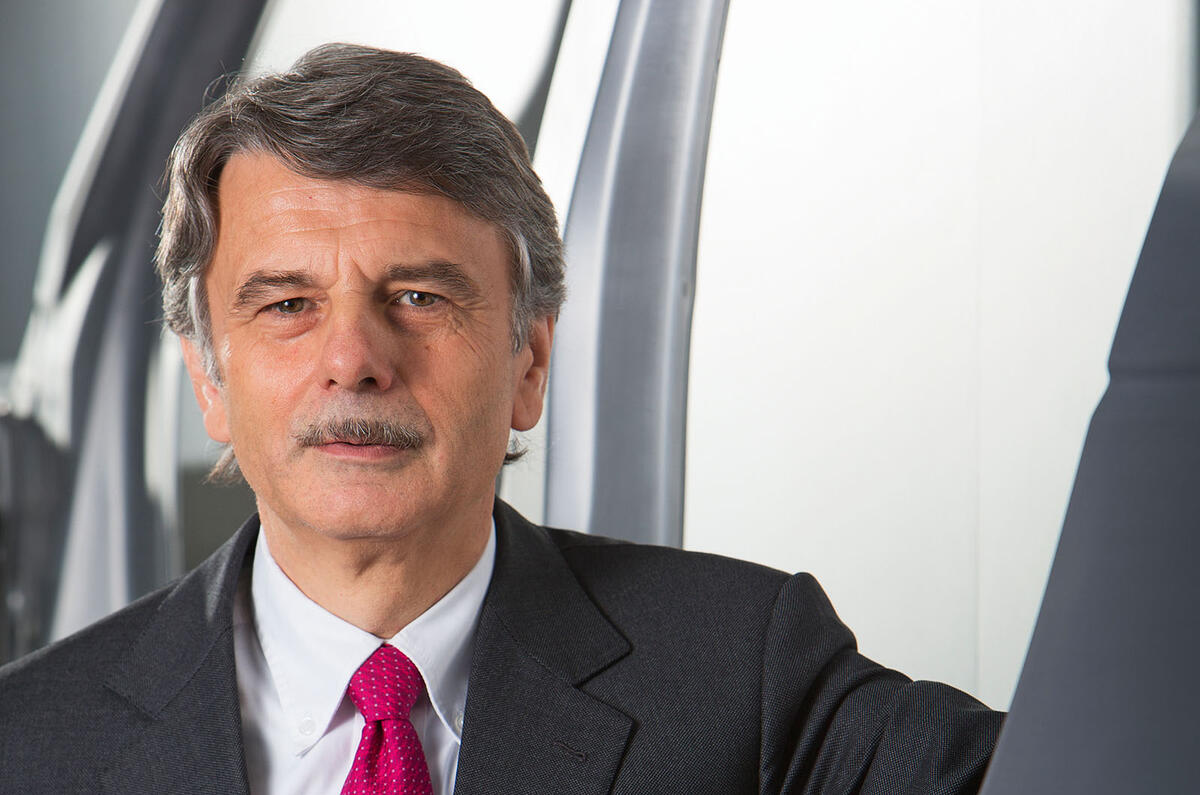
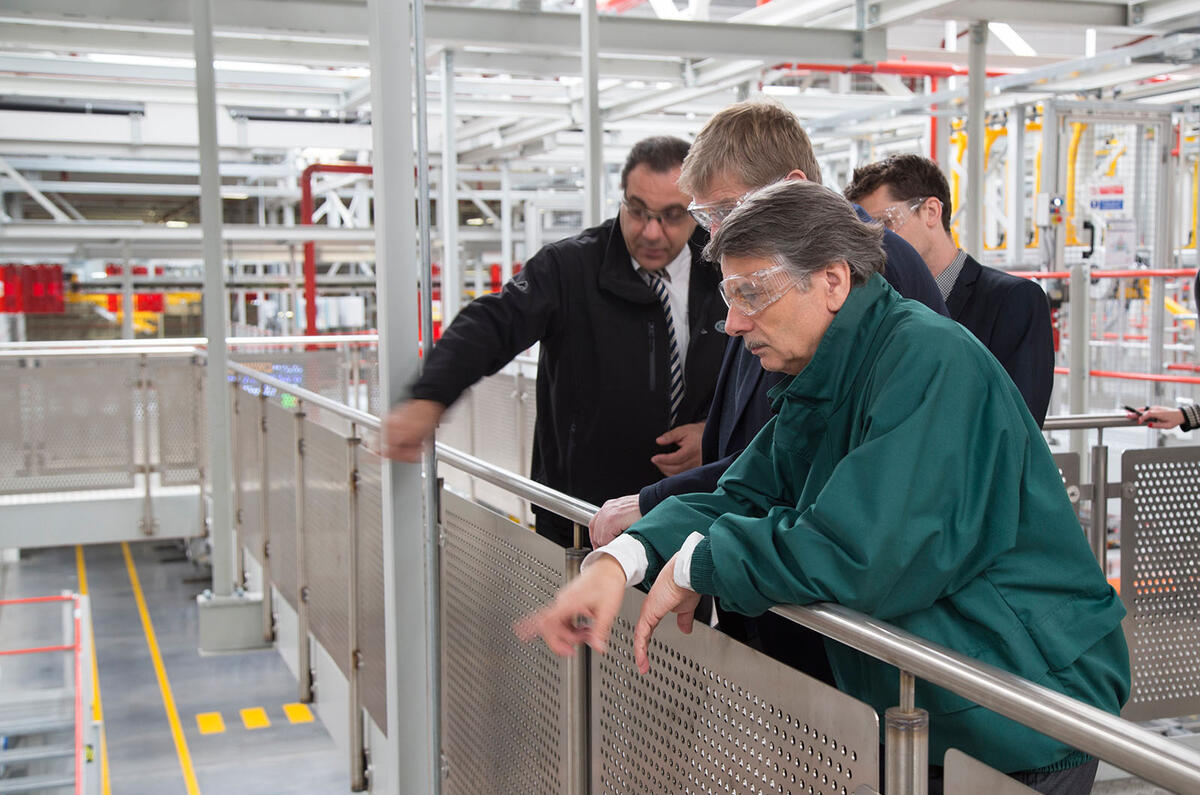
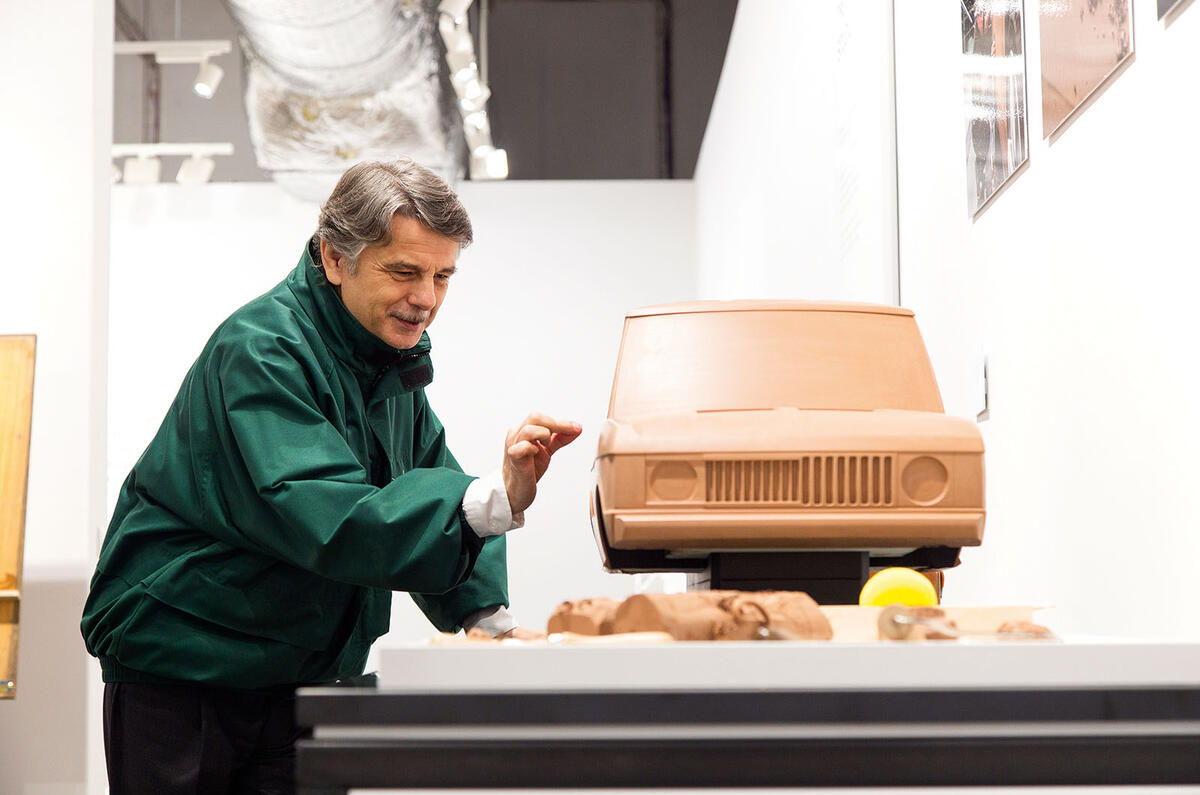
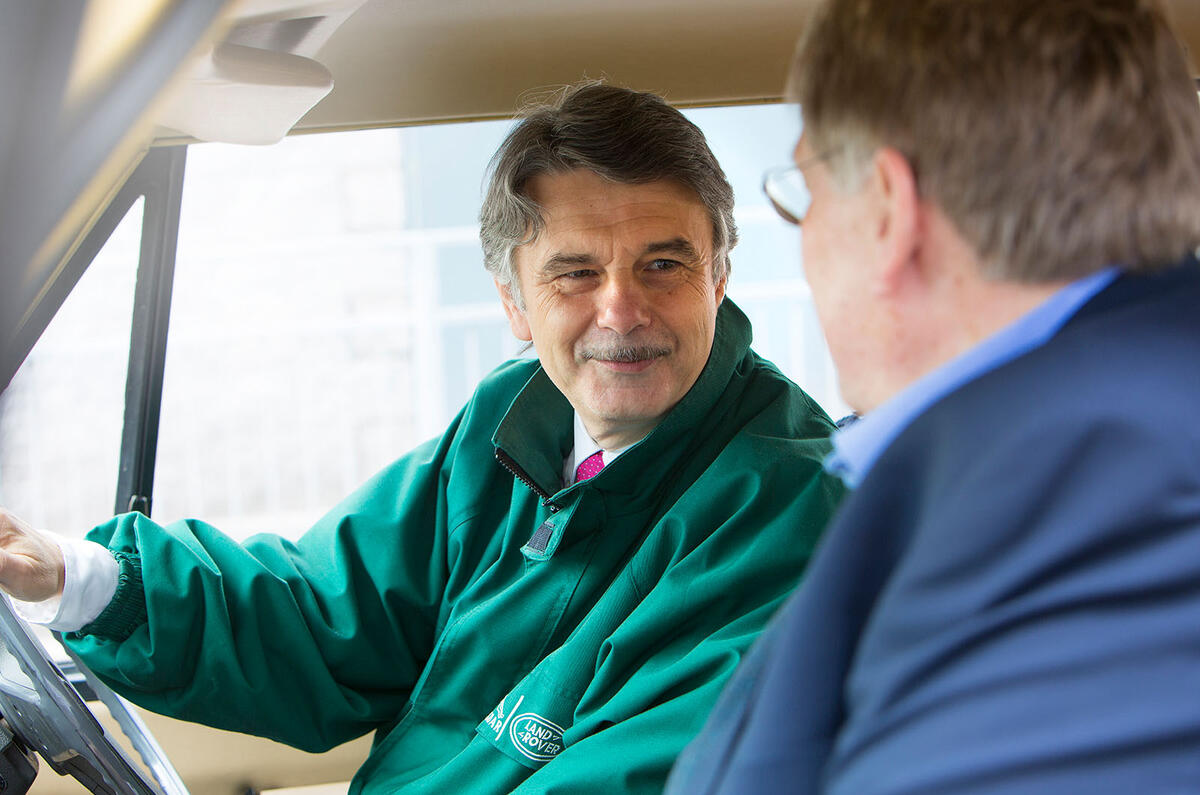
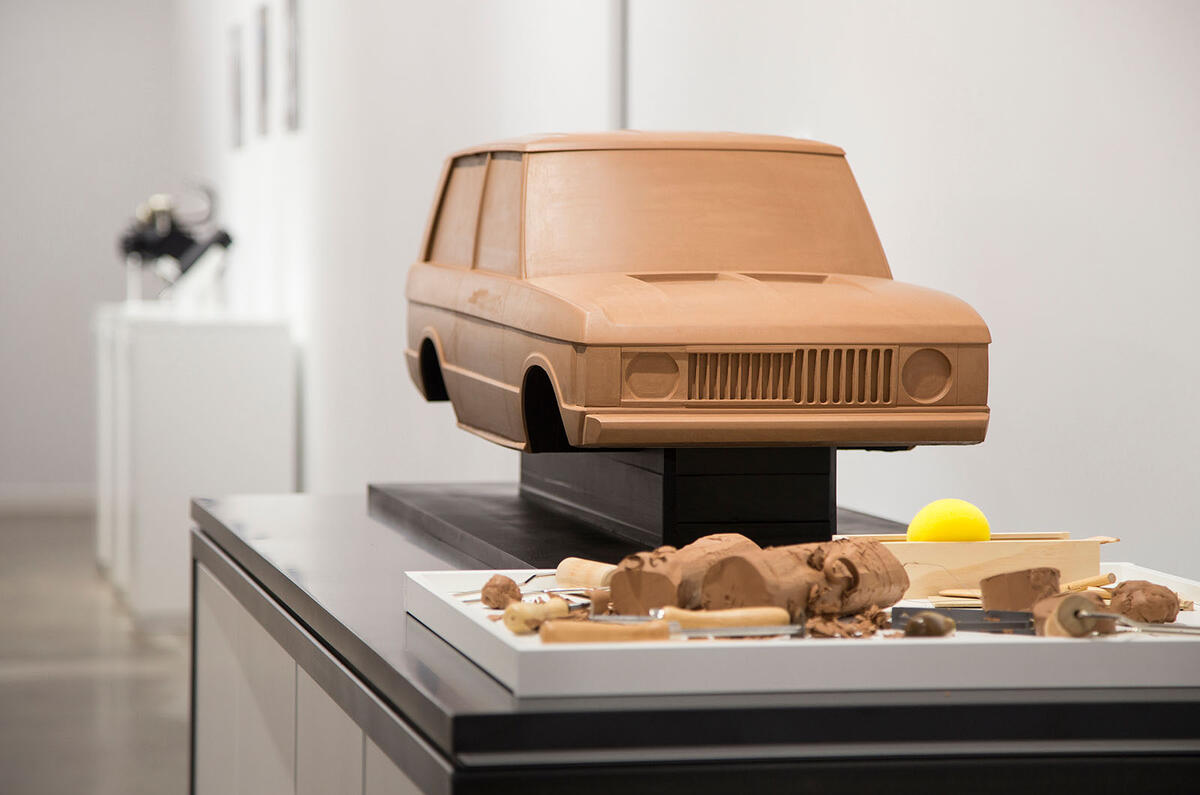
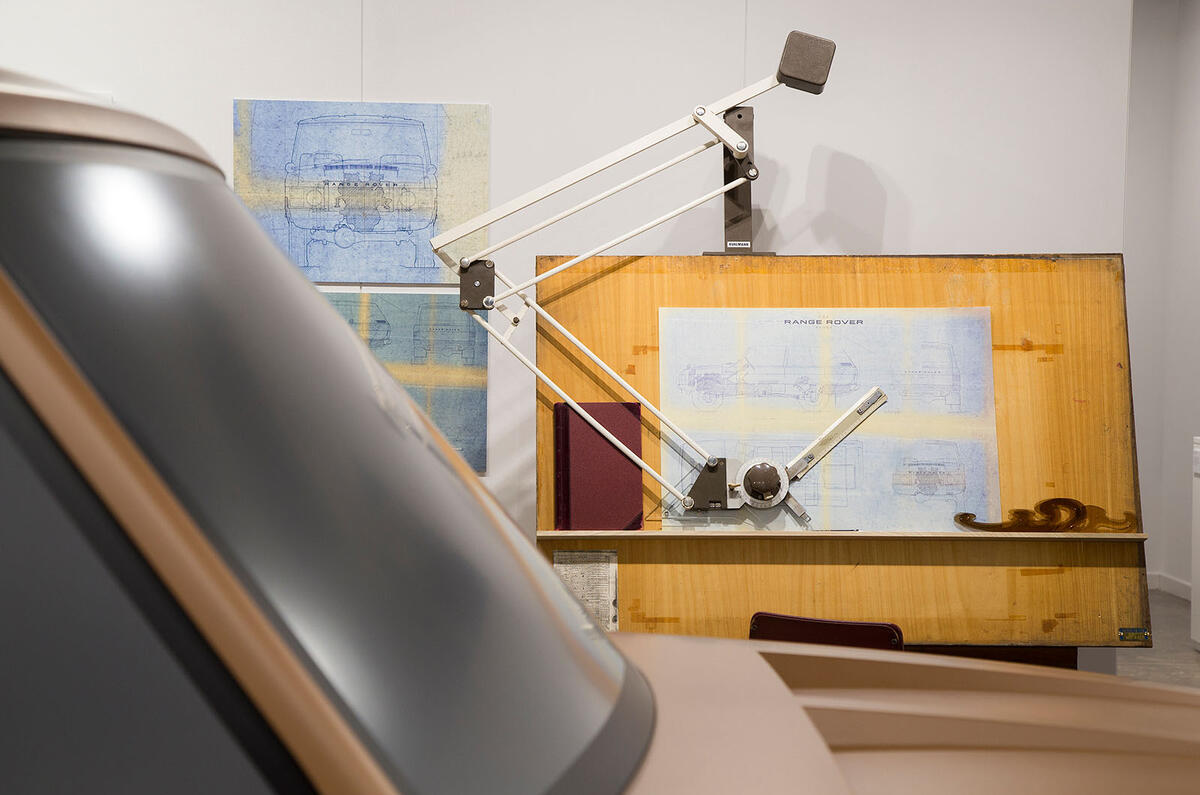
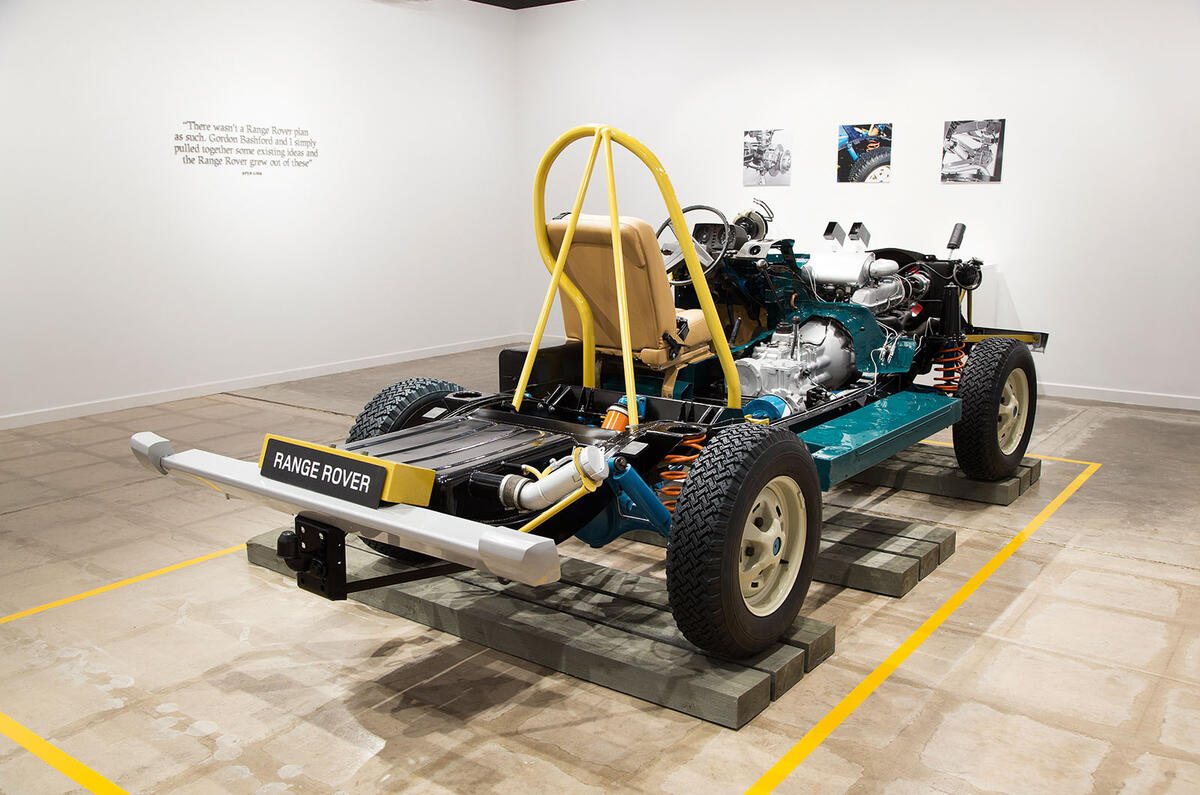
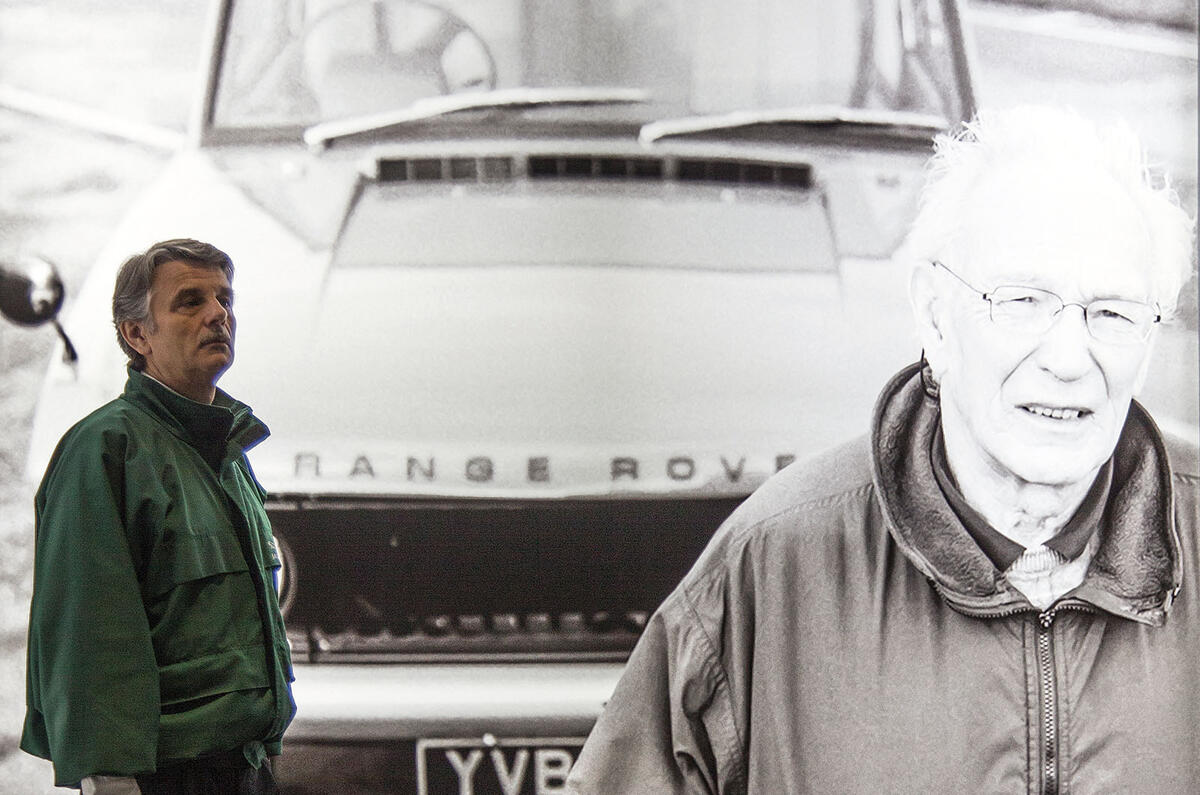
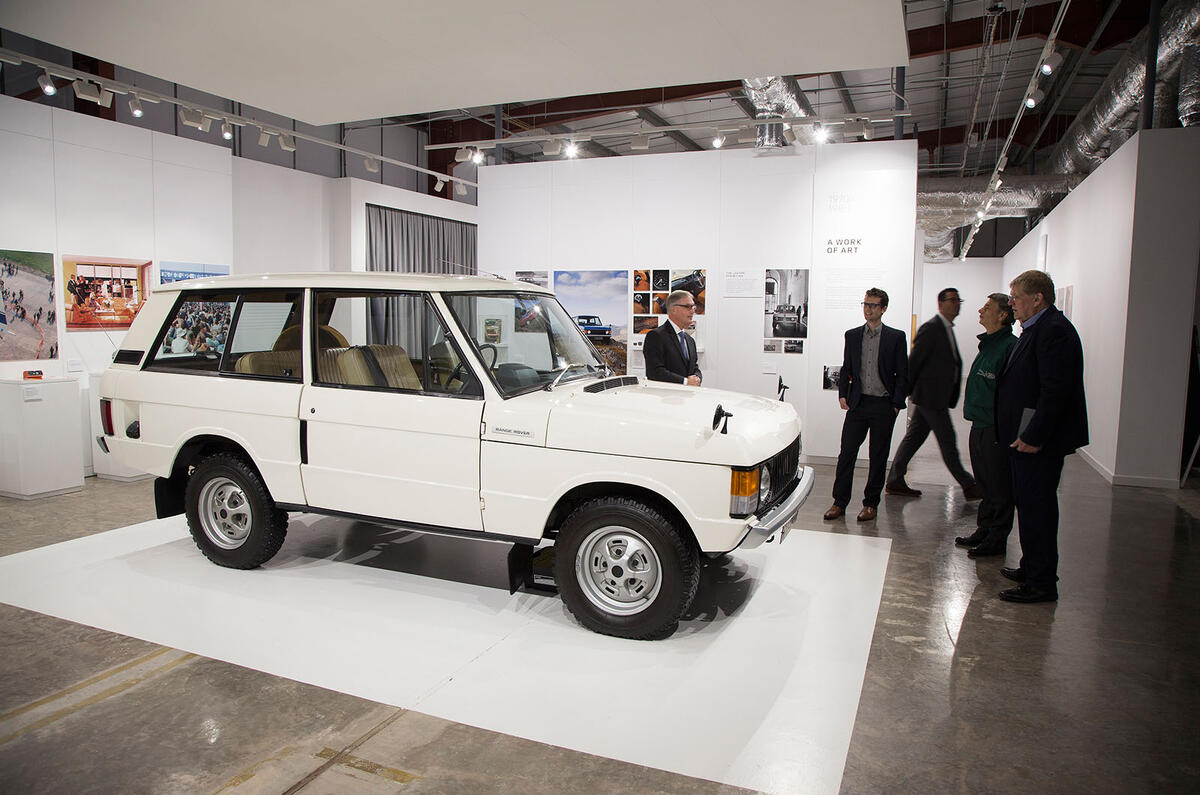
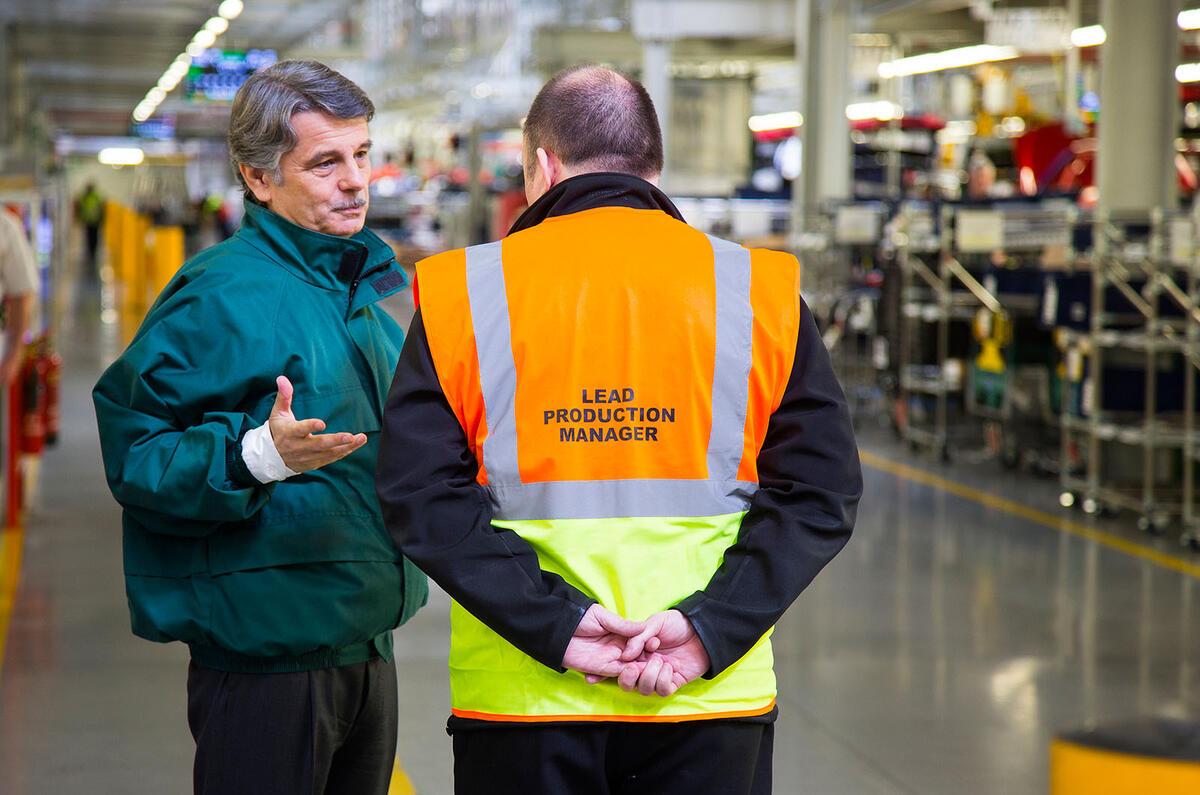
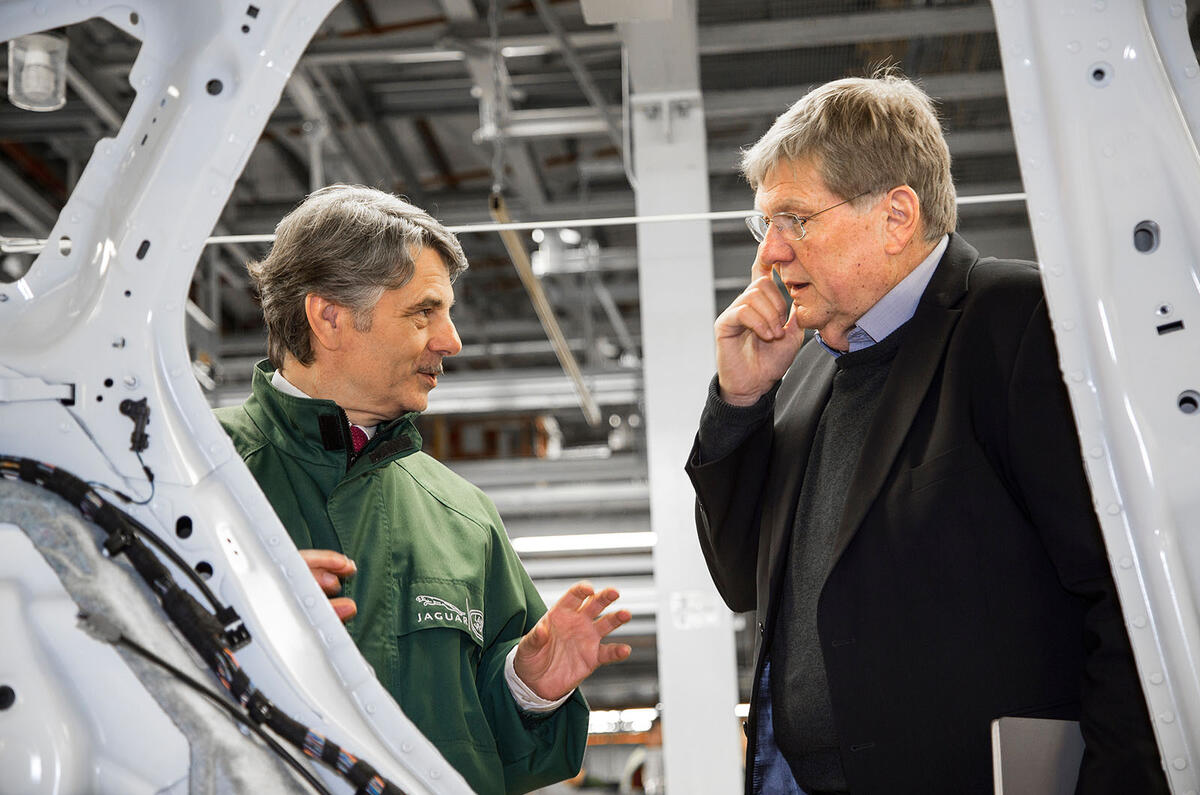

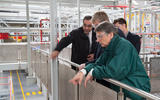







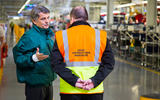
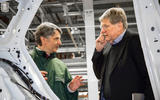






Join the debate
Add your comment
...and you don't think JLR's
All very well. But Land Rover
That is a very dangerous step away from their core value, akin to Porsche only making SUVs (no matter how profitable they are).
Trouble lies ahead.
eseaton wrote:
And LR does not need to make a product suitable for Longleat or the "proper farmer" - Toyota and Nissan do a wonderful job of that, and should be allowed to. JLR has evolved with the times, and has the potential, quite like Porsche as quoted by you, to become one of the most profitable manufacturers of premium vehicles. Why bother with a £20k "truck" when you can sell 600,000 premium SUVs, saloons and sports cars?
Congratulations Mr Speth